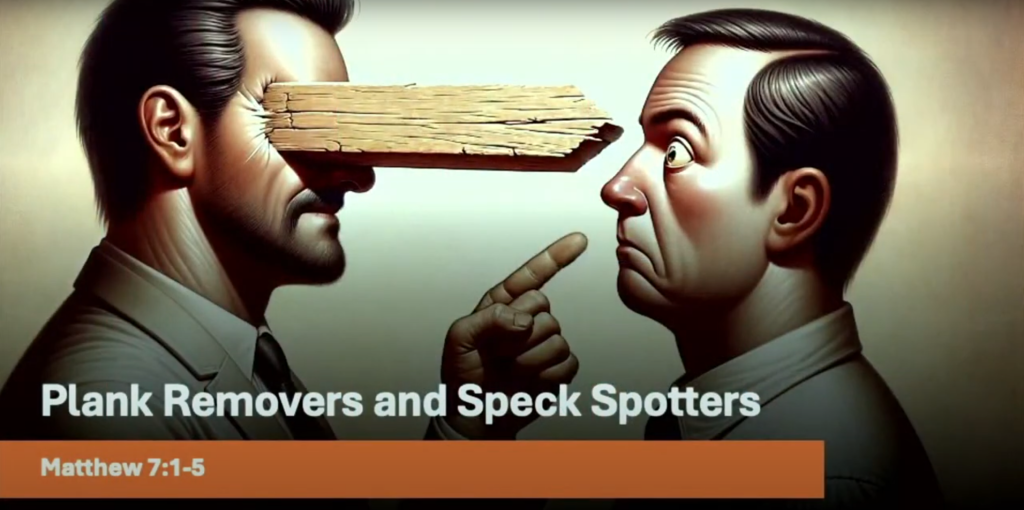The Challenge of Authentic Christianity
I heard a story about a man driving who was tailgated by a very impatient woman. When the traffic light turned yellow, he slammed on the brakes—unthinkable to some! The woman behind him missed the light, lost her temper, and began raging wildly. A police officer tapped on her window, arrested her for her outburst, and later apologized, explaining that her Christian bumper stickers, “WWJD” signs, and other religious emblems didn’t match her behavior—he thought her car was stolen!
That story makes me wonder: Is the world tired of Christians who wear His name but lack the love of Jesus in their hearts? So many Christians display symbols of faith but fall short in how they live. Could this hypocrisy be hurting more than helping?
 Jesus’ Stern Words on Hypocrisy
Jesus’ Stern Words on Hypocrisy
Jesus cuts straight to the heart of this in Matthew 7. He challenges us to be “plank removers before speck spotters.” In other words, before we judge others’ faults, we must first examine and correct our own.
In His famous Sermon on the Mount, Jesus exposes legalism and hypocrisy among religious leaders, calling His followers to live with genuine righteousness and love—not just check boxes.
The Call Not to Judge Harshly
Jesus says plainly in Matthew 7:1–2:
“Do not judge, so that you will not be judged. For in the way you judge, you will be judged; and by your standard of measure, it will be measured to you.”
Judging others with harshness puts us in danger of the same judgment. Paul echoes this in Romans 2, warning that hypocrisy causes God’s name to be blasphemed.
This doesn’t mean ignoring sin or abandoning righteousness—it means we give grace to others as we would want grace ourselves. It means resisting the temptation to play God as judge.
 The Better Way: Remove Your Own Plank First
The Better Way: Remove Your Own Plank First
Jesus then instructs us to “first take the plank out of your own eye, and then you will see clearly to take the speck out of your brother’s eye.” This doesn’t mean ignoring others’ faults; it means approaching correction with humility and self-awareness.
Before we address someone else’s sin, we must honestly confront our own. Only then can we help others in a loving, restorative way rather than condemning them.
Practical Reflections for Us Today
-
Self-examination first: Before pointing out others’ sins, identify your own. This humbles us and prevents self-righteousness.
-
Look to the gospel: Remember the grace and forgiveness you’ve received. This shapes how we talk to and correct others—with restoration as the goal, not condemnation.
-
Be a bringer of good news: Like Jesus, who sought out the broken, the lost, and the sinners, we are called to bring hope and healing, not judgment and rejection.
Why This Matters
The greatest argument for Christianity is the life of the believer. But the greatest argument against it is also the life of the believer. Our actions reflect on the name we carry.
Jesus condemned the Pharisees’ hypocrisy—they made a show of piety but had hearts far from God. Yet Jesus showed mercy, dining with outcasts and sinners, offering forgiveness and hope.
We, too, are called to be a community of grace, restoration, and love—a body where no one is beyond hope because we all need grace.
In Conclusion
If we bear His name but fail to live like Him, we profane it. If we bear His name, we must share His heart—that none should perish but all come to repentance. We must be plank removers before speck spotters, always ready to offer grace and hope.
May we live out authentic faith that draws others to Jesus, not drives them away.
